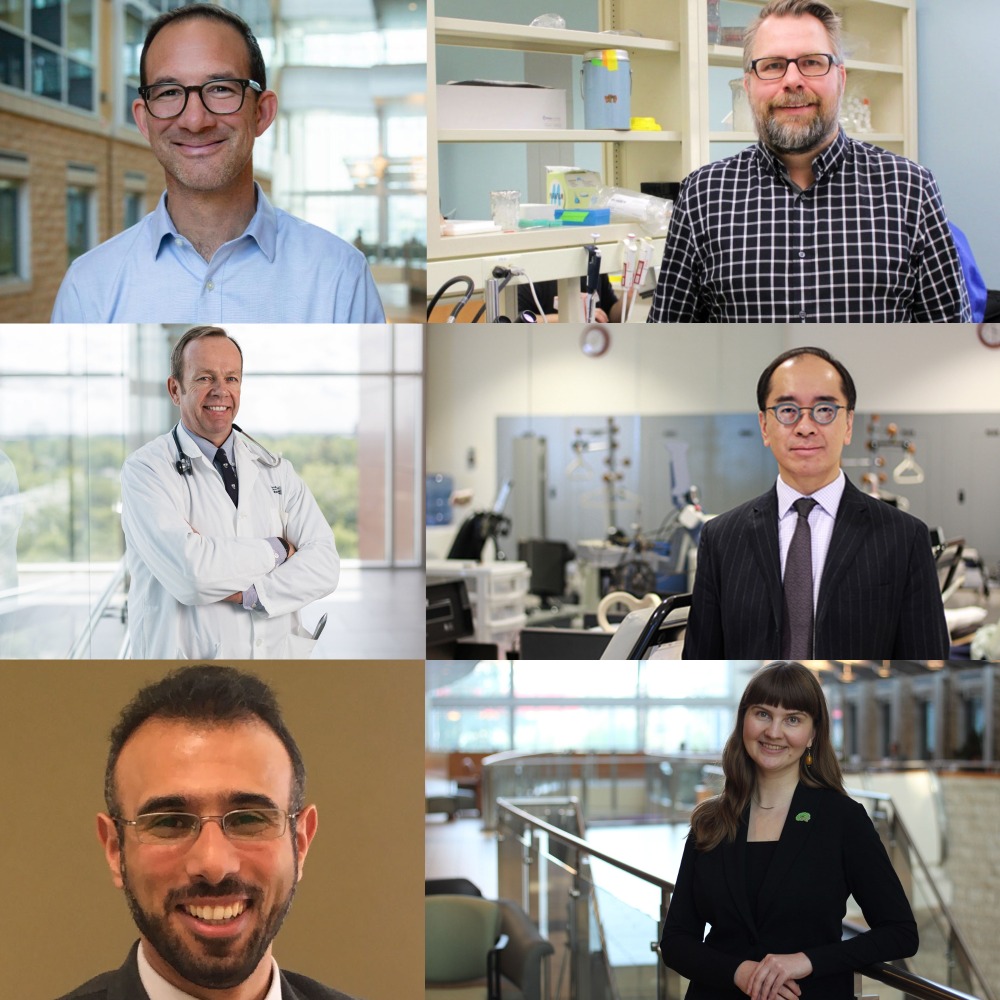U of A innovation leading to hope for MS patients
Jon Pullin - 17 May 2022

U of A researchers are making a difference in the fight against MS. Top row: Bradley Kerr, Jason Plemel. Middle row: Christopher Power, Chester Ho. Bottom row: Hossein Rouhani, Anastassia Voronova.
May is Multiple Sclerosis (MS) Awareness Month. MS is a lifelong disease that affects the brain, optic nerves and spinal cord.
Life with MS can mean symptoms such as loss of balance, impaired speech, extreme fatigue, double vision, pain, paralysis, mental health problems and reduced lifespan.
MS is one of the most common chronic degenerative conditions diagnosed in young adults and children. The prevalence of MS in Canada is among the highest reported globally. It affects women more than men at a rate of up to 3:1.
Not only is there no cure, the cause of MS remains unknown.
The University of Alberta MS Centre is a catalyst for MS research at the U of A. The MS Centre is composed of 30 MS researchers, clinicians and educators from multiple faculties with provincial, national and international collaborations.
The University Hospital Foundation (UHF) and the University of Alberta are committed to funding MS research through the Neuroscience and Mental Health Institute.
The UHF, in collaboration with the Faculty of Medicine & Dentistry at the U of A, is raising $12 million over the next few years to improve and provide better access to advanced care for those with MS and support researchers in their quest to beat MS.
Alberta is in a unique position to be a leader in research all the way to translating that knowledge into exceptional patient care. To find better treatments, the answer lies in uniting researchers, clinicians, patients and community partners in a concerted, coordinated effort.
Here are five ways U of A researchers are making a difference.
- Anesthesiology and pain professor Bradley Kerr and his team are looking to end chronic pain in MS patients by finding its starting point. They’re studying one of the most common types of chronic neuropathic pain in MS, trigeminal neuralgia—a facial pain that can be devastating for sufferers.
- Neurology professor Christopher Power and his team found that administering an anti-inflammatory drug through the nose slowed the progression of MS. Power is co-director of the U of A's MS Centre.
- U of A researchers Hossein Rouhani and Chester Ho, along with Penny Smyth, a member of the MS Centre, partnered with a precision-health innovator to develop a low-cost wearable sensor to help people manage MS.
-
Medical genetics professor Anastassia Voronova led a study that shows an immunological molecule called fractalkine can boost the production of brain cells that produce myelin.
-
Neurology professor Jason Plemel and his team discovered that immune cells in the brain and spinal cord behave differently from blood immune cells in their response to nerve damage. The findings could offer clues to treating neurological diseases such as MS.